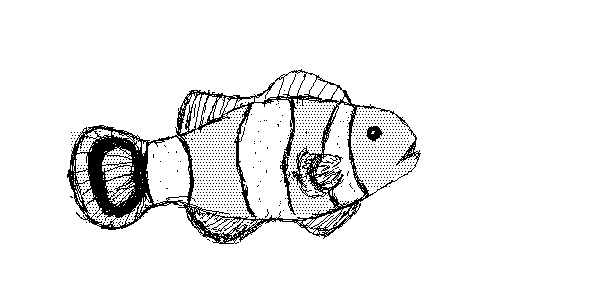


Reading The Noonday Demon: An Atlas of Depression.

A close friend recommended this book to me 5 years ago, when I had just dropped out of college and suffered my first mental breakdown. I never got around to reading it properly until earlier last week, and the first chapter felt enough like an epiphany that I’ve now decided to read the whole book.
On Diagnosis
Diagnosis is as complex as the illness. Patients ask doctors all the time, “Am I depressed?” as though the result were in a definitive blood test. The only way to find out whether you’re depressed is to listen to and watch yourself, to feel your feelings and then think about them. If you feel bad without reason most of the time, you’re depressed. If you feel bad most of the time with reason, you’re also depressed, though changing the reasons may be a better way forward than leaving circumstance alone and attacking the depression. If the depression is disabling to you, then it’s major. If it’s only mildly distracting, it’s not major. Psychiatry’s bible — the Diagnostic and Statistical Manual, fourth edition (DSM-IV) — ineptly defines depression as the presence of five or more on a list of nine symptoms. The problem with the definition is that it’s entirely arbitrary. There’s no particular reason to qualify five symptoms as constituting depression; four symptoms are more or less depression; and five symptoms are less severe than six. Even one symptom is unpleasant. Having slight versions of all the symptoms may be less of a problem than having severe versions of two symptoms. After enduring diagnosis, most people seek causation, despite the fact that knowing why you are sick has no immediate bearing on treating the sickness.
Depression and your body
Illness of the mind is real illness. It can have severe effects on the body. People who show up at the offices of their doctors complaining about stomach cramps are frequently told, “Why, there’s nothing wrong with you except that you’re depressed!” Depression, if it is sufficiently severe to cause stomach cramps, is actually a really bad thing to have wrong with you, and it requires treatment. If you show up complaining that your breathing is troubled, no one says to you, “Why, there’s nothing wrong with you except that you have emphysema!” To the person who is experiencing them, psychosomatic complaints are as real as the stomach cramps of someone with food poisoning. They exist in the unconscious brain, and often enough the brain is sending inappropriate messages to the stomach, so they exist there as well. The diagnosis — whether something is rotten in your stomach or your appendix or your brain — matters in determining treatment and is not trivial. As organs go, the brain is quite an important one, and its malfunctions should be addressed accordingly.
Although depression is described by the popular press and the pharmaceutical industry as though it were a single-effect illness such as diabetes, it is not. Indeed, it is strikingly dissimilar to diabetes. Diabetics produce insufficient insulin, and diabetes is treated by increasing and stabilizing insulin in the bloodstream. Depression is not the consequence of a reduced level of anything we can now measure. Raising levels of serotonin in the brain triggers a process that eventually helps many depressed people to feel better, but that is not because they have abnormally low levels of serotonin. Furthermore, serotonin does not have immediate salutary effects. You could pump a gallon of serotonin into the brain of a depressed person and it would not in the instant make him feel one iota better, though a long-term sustained raise in serotonin level has some effects that ameliorate depressive symptoms.
On reducing depression to a chemical phenomenon
Chemistry is often called on to heal the rift between body and soul. The relief people express when a doctor says their depression is “chemical” is predicated on a belief that there is an integral self that exists across time, and on a fictional divide between the fully occasioned sorrow and the utterly random one. The word chemical seems to assuage the feelings of responsibility people have for the stressed-out discontent of not liking their jobs, worrying about getting old, failing at love, hating their families. There is a pleasant freedom from guilt that has been attached to chemical. If your brain is predisposed to depression, you need not blame yourself for it. Well, blame yourself or evolution, but remember that blame itself can be understood as a chemical process, and that happiness, too, is chemical. Chemistry and biology are not matters that impinge on the “real” self; depression cannot be separated from the person it affects. Treatment does not alleviate a disruption of identity, bringing you back to some kind of normality; it readjusts a multifarious identity, changing in some small degree who you are.
Anyone who has taken high school science classes knows that human beings are made of chemicals and that the study of those chemicals and the structures in which they are configured is called biology. Everything that happens in the brain has chemical manifestations and sources. If you close your eyes and think hard about polar bears, that has a chemical effect on your brain. If you stick to a policy of opposing tax breaks for capital gains, that has a chemical effect on your brain. When you remember some episode from your past, you do so through the complex chemistry of memory. Childhood trauma and subsequent difficulty can alter brain chemistry. Thousands of chemical reactions are involved in deciding to read this book, picking it up with your hands, looking at the shapes of the letters on the page, extracting meaning from those shapes, and having intellectual and emotional responses to what they convey. If time lets you cycle out of a depression and feel better, the chemical changes are no less particular and complex than the ones that are brought about by taking antidepressants. The external determines the internal as much as the internal invents the external. What is so unattractive is the idea that in addition to all other lines being blurred, the boundaries of what makes us ourselves are blurry. There is no essential self that lies pure as a vein of gold under the chaos of experience and chemistry. Anything can be changed, and we must understand the human organism as a sequence of selves that succumb to or choose one another.
Reading up on my country’s political system today and realising I have a better understanding of how a federal system works thanks to being on the fediverse and observing the discourse there.
Terms like “cooperative federation”, “federating units”, “decentralisation and devolution of power” make intuitive sense now instead of feeling like legal abstractions.
Which reminds me of something I read last year:
There’s an obvious connection between a decentralized internet, in which individuals create and oversee their own digital identities, and a functioning democracy, in which we make informed choices about who rules us and how we are ruled. Yet too few people make that link.
Reference texts:

Driving to the Lahooti Melo in Jamshoro